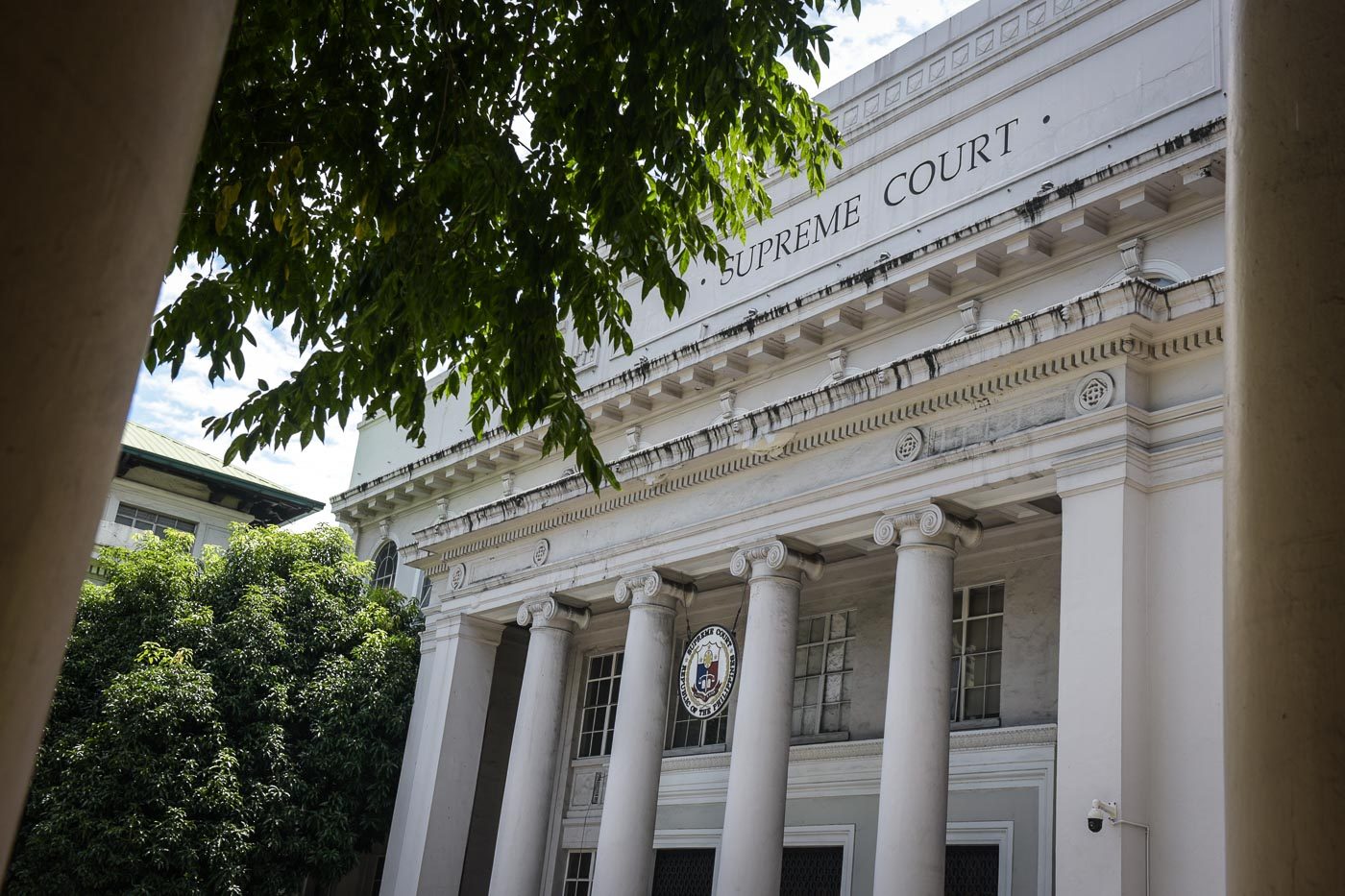SUMMARY
This is AI generated summarization, which may have errors. For context, always refer to the full article.

MANILA, Philippines – The Supreme Court’s P7.9-million worth of computer purchases violated several provisions of the procurement law, the Commission on Audit (COA) said.
“Management resorted to ‘Shopping’ or ‘Small Value Procurement’ as an alternative mode of purchasing computer sets and printers worth P7,987,495.00, instead of public bidding contrary to Section 10, Rule V of the IRR of Republic Act 9184 (Procurement Law),” state auditors said in their 2017 report on the Supreme Court released on September 24.
Ousted Chief Justice Maria Lourdes Sereno headed the Supreme Court in 2017. Rappler has requested a comment from both Sereno’s camp and the Court’s public information chief, both of whom said they are looking into the matter. (READ: Supreme Court ghosts haunt Sereno in her next chapter)
What were the purchases for? According to the COA report, the SC bought computer sets, printers, and laptops from Phi-Data Business System and Compare Corp.
The SC said in its reply to COA that the purchases were for the implementation of the e-Subpoena and other e-Court features, the flagship projects of the the Judiciary Reform Program (JRF).
Purchases from both suppliers did not go through public bidding, but instead went through shopping or small value procurement.
Is that allowed? Under RA 9184, shopping or small value procurement are allowed, provided that for national government agencies like the judiciary, the amount involved does not exceed P1 million.
What the SC did was issue different purchase orders to the same siuppliers on the same date. “It is tantamount to splitting contrary to RA 9184,” said auditors. Splitting is when the agency divides contracts to meet purchase limits.
According to the SC, there was an urgent need to buy the equipment so they did it “by lot.”
“Particularly the dispensation of justice being at stake, the Purchase Request (PR) of the subject IT equipment was done by lot. And for every PR, a corresponding Purchase Order (PO) was issued. Thus, different POs with the same date were issued incidentally to the same supplier,” said the SC.
The COA disagrees.
“Procurements should have been done through public bidding by bulk purchases to widen competition, instead of limiting to three suppliers only. Since Shopping or Small Value Procurements were used, management should have invited suppliers from the regions to save on costs of freight of P193,600.00 which were add-ons to the prices of the suppliers for deliveries made in the regional Lower Courts,” said auditors.
Auditors also noted that if there really was an urgent need for the equipment, why did the SC agree to a 30-day delivery when RA 9184 allows even as short as 26 days.
What were the other violations? By COA’s computation, the SC spent P1.3 million more than what it should have, because it bought the same items from two different suppliers for different prices.
For example, laser printers cost P8,995 each from Compucare Corporation, but P21,000 each from Phil-Data Business Systems.
“Overall, the agency paid an excess of P1,316,305.00, as shown in Table 19, for the purchase of some of the above IT equipment contrary to Section 48.1, Rule XVI of the RA 9184 IRR,” said COA.
Auditors also found that some disbursement vouchers lacked required documents, leading the COA to say that there was “no check and balance in the procurement process.”
The COA found that only property officers signed purchase orders, with no written authority contrary to the judiciary’s human resource manual.
Were there other observations? In its 2017 report, COA has also found irregularities in Sereno’s purchase of her land cruiser.
Auditors also tackled the SC’s expense for Boracay Shangri-La during the 2015 ASEAN Chief Justices and the ASEAN Law Association (ALA) General Assembly which was also cited in the impeachment complaint against Sereno.
The COA said the SC did not ask for quotations from two other hotels of the same type or classification within the vicinity of Boracay, which was required under the procurement law.
Sereno announced recently that she will not be running for senator in 2019. – Rappler.com
Add a comment
How does this make you feel?
There are no comments yet. Add your comment to start the conversation.